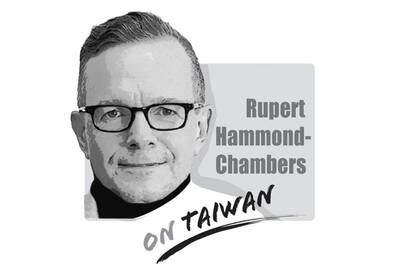I would like to protest your article on King Kamehameha and address an offensive error ("Law of the splintered paddle," Nov. 7, page 13).
Anyone who understands Hawaii's history knows that an article about King Kamehameha should not be in a section called "Meeting Amazing Americans."
King Kamehameha was never an American. He was the ruler of the Kingdom of Hawaii, an independent nation. The 1993 Apology Bill passed by the US Congress states that Hawaiians have never relinquished their sovereignty and admits that the US acted illegally in overthrowing Queen Liliuokalani. King Kamehameha was not an American when he was alive, and he is certainly not now because of America's self-admitted theft of the Hawaiian Islands.
The Hawaiian people have been struggling for political and cultural freedom for over 100 years. As a longtime resident of Hawaii and as an observer with Na Koa Ikaika o Ka Lahui Hawai'i, a Native Hawaiian political organization, at the 2003 UN Permanent Forum on Indigenous Issues, I witnessed firsthand the hurdles faced by Hawaiians in reclaiming their history from ignorant or malignant foreigners.
The Taipei Times, which is generally respectful toward the indigenous people of Taiwan, in my limited experience with the paper, should be more conscientious regarding its source materials for stories about Hawaii. King Kamehameha is a fascinating historical figure and there are ample sources available from Hawaiian scholars.
Although this is an imperfect analogy, using the American Institute in Taiwan (AIT) or any US government agency as source for a story on King Kamehameha is like using the official library of the People's Republic of China as a source for a story about former president Lee Teng-Hui (李登輝).
Nathan Miller
Hawaii
Having lived through former British prime minister Boris Johnson’s tumultuous and scandal-ridden administration, the last place I had expected to come face-to-face with “Mr Brexit” was in a hotel ballroom in Taipei. Should I have been so surprised? Over the past few years, Taiwan has unfortunately become the destination of choice for washed-up Western politicians to turn up long after their political careers have ended, making grandiose speeches in exchange for extraordinarily large paychecks far exceeding the annual salary of all but the wealthiest of Taiwan’s business tycoons. Taiwan’s pursuit of bygone politicians with little to no influence in their home

In 2025, it is easy to believe that Taiwan has always played a central role in various assessments of global national interests. But that is a mistaken belief. Taiwan’s position in the world and the international support it presently enjoys are relatively new and remain highly vulnerable to challenges from China. In the early 2000s, the George W. Bush Administration had plans to elevate bilateral relations and to boost Taiwan’s defense. It designated Taiwan as a non-NATO ally, and in 2001 made available to Taiwan a significant package of arms to enhance the island’s defenses including the submarines it long sought.
US lobbyist Christian Whiton has published an update to his article, “How Taiwan Lost Trump,” discussed on the editorial page on Sunday. His new article, titled “What Taiwan Should Do” refers to the three articles published in the Taipei Times, saying that none had offered a solution to the problems he identified. That is fair. The articles pushed back on points Whiton made that were felt partisan, misdirected or uninformed; in this response, he offers solutions of his own. While many are on point and he would find no disagreement here, the nuances of the political and historical complexities in
Taiwan faces an image challenge even among its allies, as it must constantly counter falsehoods and misrepresentations spread by its more powerful neighbor, the People’s Republic of China (PRC). While Taiwan refrains from disparaging its troublesome neighbor to other countries, the PRC is working not only to forge a narrative about itself, its intentions and value to the international community, but is also spreading lies about Taiwan. Governments, parliamentary groups and civil societies worldwide are caught in this narrative tug-of-war, each responding in their own way. National governments have the power to push back against what they know to be